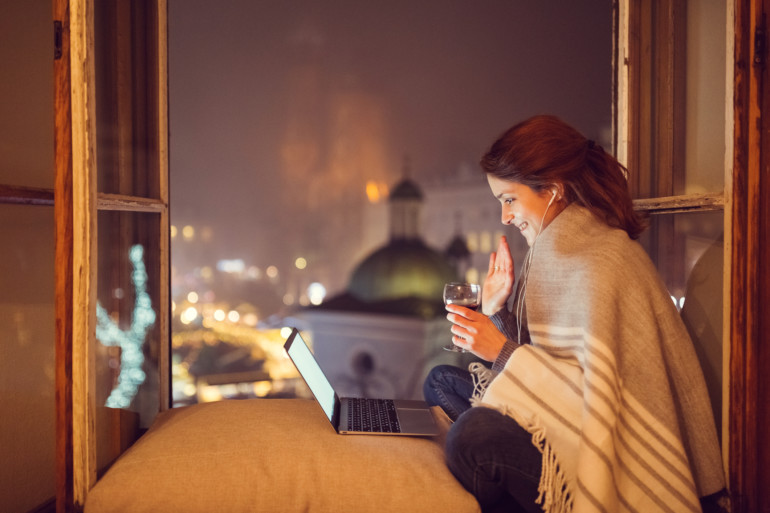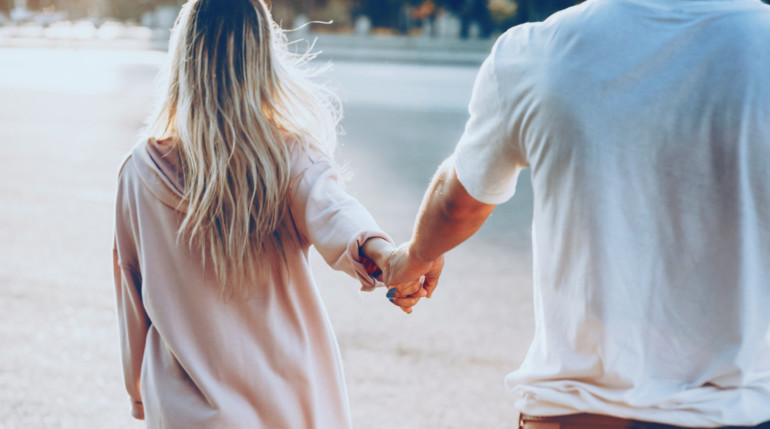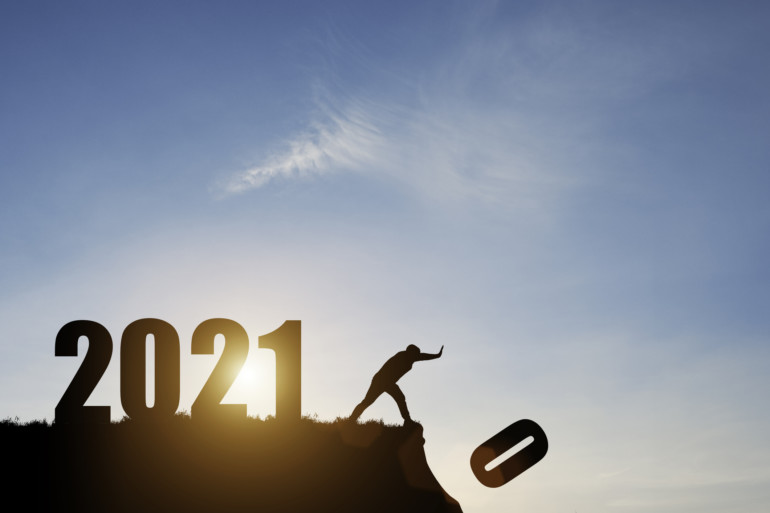I think it’s safe to say 2020 was nothing like anyone expected when we watched the ball drop a little more than a year ago. Though we had no idea what was in store for us, we were on the cusp of a global pandemic, a modern-day civil rights movement, and one of the most cut-throat presidential elections in U.S. history. None of these circumstances made it easy to date, let alone live our lives as we once did.
With a vaccination effort now underway, more self-awareness about racism, and a new administration in office, I’ve spent the last month or so thinking about what we can expect for singles in the coming year. Despite the challenges we’ve faced during the past 11 months, I’m optimistic about the dating landscape in 2021, and not only because my clients have already demonstrated how resilient they are, finding love in the direst of circumstances.
I’m hopeful because I believe the hardships singles had to contend with last year made them better daters. Based on my work with clients for more than three decades, these are my predictions for how the events of 2020 will affect dating trends in 2021.
Slower Dating

One consequence arising from the events of 2020 is that daters are taking more time to get to know romantic partners and take things slow. According to a new study released by OkCupid, 84 percent of those surveyed believe it’s important to make an emotional connection before a physical connection. During a pandemic, when making a physical connection puts you at risk for more than a broken heart, it only makes sense that the current trend is to build connections slowly, step by step.
Open-Mindedness
As a direct result of the pandemic, virtual dating has grown in prominence among daters who might have been used to meeting singles only in person — at bars, the gym, work, even the grocery store. With much of these scenarios off the table, singles understand there’s less need to limit their search to just their area. The OkCupid study found there has been a 50 percent increase in connections and conversations between matches that live in different countries, resulting from more and more people setting their locations to “anywhere.”
In a broad sense, people are increasingly dating outside of their comfort zone, reflecting a rise in inter-religious and interracial dating. OkCupid revealed people are now 15 percent more likely to match with someone with a different religious background and 10 percent more likely to match with someone with a different racial background than they were before the pandemic. This result might be due to increased cultural and racial awareness, in addition to a willingness to cast a larger net.
Another new study, this one from Plenty of Fish, revealed a similar sentiment. Having had a lot more time to think about what they want from a relationship, nearly two-thirds of the singles polled said they would be more open to dating someone they would have overlooked in the past. Fifty-five percent said they would even consider reconciling with an ex when life gets back to normal.
Conscious Dating

With less of an ability to go out and meet people and a need to place a more considerable emphasis on socially distant dating, daters are thinking more carefully about how they allocate their time to potential matches. If they don’t see a future with a match or soon figure out they have different relationship goals, they have less incentive to continue interacting.
With less background noise in their lives, with fewer distractions, daters are paying attention, listening to the little voice inside of them that says when they should give a match a try, continue dating a particular person, stay in a relationship, or leave one. For example, more than half of the Plenty of Fish users in the study pointed to a potential match’s disinterest in getting vaccinated against COVID-19 as a dealbreaker for them.
More Fine-Tuned Dating
With conscious dating also comes narrower relationship goals and expectations. In other words, people are more willing than ever to apply what they want from their more abstract dating goals to the dating process specifically. Daters are taking their goals to task by setting their sights on only viable matches (this person is interested in getting married one day, is open to relocating, etc.) and consider what a “good” date will look like to them. If they don’t see what they’re looking for, they continue their search.
A Willingness to Give a Serious Relationship a Try

As observed in the OkCupid study, five million people on the site believe couples should live together before getting married. One million users also indicated how they dislike living alone. Having to socially distance during the pandemic heightened this sentiment, opening daters’ minds to living together quicker.
True, living together more quickly might not appear to be in line with a slower dating process at first glance. But when you consider how living together is a means to explore a monogamous relationship, it does indicate a dating slowdown. Indeed, the stakes are higher because you’re putting in a lot more of yourself out there up front, but with higher stakes come higher payouts, particularly if that payout is the relationship you’ve been looking for all your life.
Plenty of Fish users agreed, with 57 percent of study respondents revealing they feel optimistic about finding “The One” in the new year. Forty percent took it a step further to declare Valentine’s Day the perfect time to start a new relationship. I can’t say I’m surprised. As Emily Dickinson so poignantly put it, “The heart wants what it wants.”


